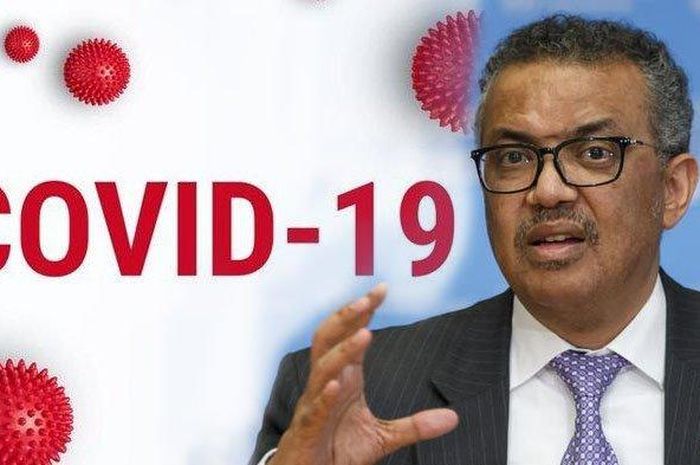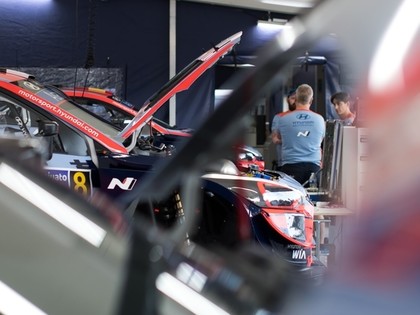Sosok.ID – Head of the World Health Organization Tedros Adhanom Ghebreyesus said on Monday (7/9/2020) that the world must better prepare for the next pandemic.
According to Tedros, the current covid-19 is not the end of the pandemic.
In the future, Tedros believes that another pandemic will emerge that could be even more terrifying than the SARS-CoV-2 virus that originated in China.
Quoted Sosok.ID from Reuters, Wednesday (9/9), Tedros appealed to countries in the world to invest in public health.
Globally, currently more than 27.19 million people have been infected with the corona virus.
While 888,326 of them have been declared dead, according to a Reuters tally, since the first cases were identified in China in December 2019.
“This is not the last pandemic,” Tedros said at a briefing in Geneva.
“History teaches us that plague and pandemic are facts of life. But when the next pandemic comes, the world must be better prepared than this time. “
Also Read: Poor Countries Move First, Rich Countries Are Too Selfish to Share Covid-19 Vaccines, WHO Gives Up!
Launch Japan Times, Tedros previously said that the World Health Organization would not carelessly support the manufacture of a corona virus vaccine.
WHO insists it will never support a vaccine that has not been proven safe and effective, amid fears the world is rushing to inject a Covid-19 vaccine.
This is done in order to avoid danger, even though the world has boasted that the manufacture of vaccines will be distributed as quickly as possible.
This virus, which has upended millions of lives, families and wreaked economic havoc on a global basis, has troubled billions of Earth’s inhabitants.
Under normal procedures, test administrators have to wait months or years to verify that the COVID-19 vaccine candidate is safe and effective.
But as the pandemic continues to claim devastating casualties, there is immense pressure to launch a vaccine quickly, fueling fears that testing standards are being lowered.
So the Head of WHO, Tedros Adhanom Ghebreyesus, emphasized that his party would not take any risk of agreeing to a vaccine.
“WHO will not support vaccines that are ineffective and safe,” he said at a virtual briefing.
He also raised concerns about the so-called anti-vax movement that has sparked concern about a vaccine in development.
As is known, even though the corona has eaten away at millions of Earth’s inhabitants, not a few doubt the existence of this pandemic.
They may be able to “build a narrative against vaccines, but the track record of vaccines tells a story of its own,” Tedros said.
There are currently more than 30 vaccine candidates being tested in humans, with at least eight in Phase III trials that typically involve tens of thousands of people.
WHO chief scientist Soumya Swaminathan said at a briefing Friday, stressing that only about 10 percent of vaccine candidates are successful.
“This is a very optimistic scenario because there are very large candidates,” he said.
He explained that the “unprecedented pace of development of a Covid vaccine” was made largely possible by investments in vaccine platforms for other diseases, which have been reused for use against the new coronavirus.
But Swaminathan stressed that developers should not skip various phases of rigorous testing.
“No vaccine will be distributed en masse until regulators are sure and the government is confident and WHO is sure that this vaccine meets minimum standards of safety and efficacy.”
Tedros voiced the hope that someone would soon come up with a vaccine available “so the world can return to the norm”.
But while the WHO says they expect to see results from a series of Phase III trials by the end of the year, that is dampening hopes that a vaccine is imminent.
Given the enormous challenges involved in producing and rolling out vaccines to billions of people worldwide, widespread vaccination is not expected to start until mid-2021.
Tedros stressed that at least, initially, supplies would be limited.
“Priority should be given to vaccinating essential workers and those most at risk,” he said, stressing that “first priority should be given to some people in all countries, rather than all people in some countries.”
WHO itself has established a mechanism known as Covax, which aims to ensure a fairer distribution of any vaccine in the future.
But so far, WHO is struggling to raise the funds needed to provide funds to the 92 poor countries that have registered.
Also Read: Official! Starting today, Malaysia will not have its land trampled by Indonesians
Tedros said on the same day that 78 high- and upper-middle income countries and economies had now confirmed that they would participate, including Germany, Japan, Norway and the European Commission just in the past week.
It opens up good opportunities for the world.
Tedros pointed out that in an interconnected world, “the virus will continue to kill and global economic recovery will be delayed” if poorer countries cannot gain access to vaccines.
Sharing fairly, he said, “is not only a moral and public health imperative, it is also an economic imperative.”
–
World Health Organization (WHO)


